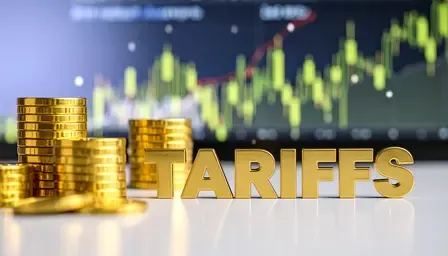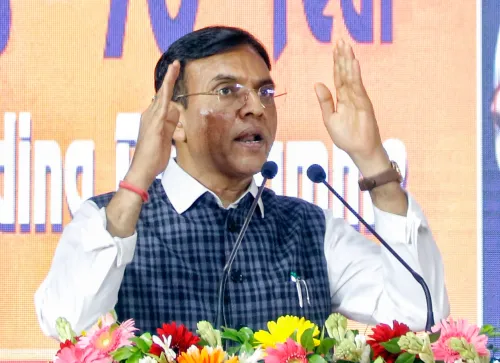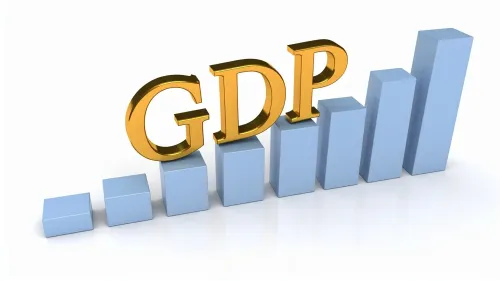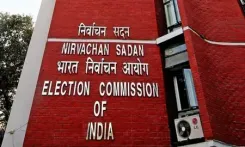Are Trade Talks Signaling a New Era in US-India Relations?

Synopsis
Key Takeaways
- Trump's positive signals suggest a potential trade agreement with India soon.
- Tariff reductions are on the table, which could enhance trade relations.
- Indian officials stress the importance of protecting local interests in negotiations.
- Trump's visit could symbolize a major shift in US-India relations.
- The Quad's role is critical in countering China's influence.
New Delhi, Nov 13 (NationPress) US President Donald Trump has conveyed encouraging signals regarding the enhancement of US-India relations this week, igniting renewed optimism that a bilateral trade agreement between the world’s two largest democracies could soon be finalized.
Trump informed journalists at the White House that his discussions with Indian Prime Minister Narendra Modi were “going exceptionally well” and hinted at a possible visit to Delhi next year.
This week, Trump also expressed intentions to “reduce tariffs” imposed on India “at some point,” suggesting that a significant breakthrough in the trade discussions might be on the horizon.
“I believe we are quite close to finalizing a deal (with India) that benefits everyone,” Trump remarked, responding to a media inquiry during the swearing-in ceremony for Sergio Gor as the new US Ambassador to India.
While some Indian officials have shown optimism about the upcoming India-US trade agreement, Commerce Minister Piyush Goyal emphasized on Tuesday that India will not compromise on the interests of farmers, the dairy sector, and workers in any trade agreements with other nations. “We are striving for a fair, equitable, and balanced trade deal,” he stated.
The Minister further noted that the timing for such agreements will rely on mutual readiness. “The trade deal might occur tomorrow, next month, or next year... but as a government, we are preparing for every scenario,” he added.
An article in the South China Morning Post cited Harsh Pant, a professor of international relations at King’s College London, who mentioned that Trump's visit would represent a resurgence in the relationship between Delhi and Washington.
“If you observe closely, they are advancing in numerous areas, including defense cooperation, space collaboration, and economic ties,” Pant commented. “When Mr. Trump visits India, it will symbolize a significant positive shift in the relationship.”
Currently, Trump’s unpredictability is complicating bilateral relations, including delays in finalizing a free-trade agreement, Pant added.
The article noted that President Trump was initially anticipated to visit India for the upcoming Quad summit, which was provisionally scheduled in Delhi for November. However, media reports from August indicated that Trump had canceled his attendance amidst rising tensions with India.
The Indo-Pacific Quad grouping includes Australia, India, Japan, and the United States as a strategic counterbalance to China’s expanding influence.
Although Trump has sent officials to several Quad events during both his first and current terms, a perceived lack of commitment to the grouping could be viewed as a setback, Pant noted.
“I believe that a few months' postponement won’t significantly matter. However, if there is no Quad summit for a year, many will question the relevance of the Quad in the Trump administration’s agenda,” he stated.
The article also referenced Priyajit Debsarkar, a London-based political and security analyst, who opined that the trade relationship could be mended if Washington agreed to lower tariffs to about 15 to 20 percent, enabling Indian exports to regain global competitiveness.
On the defense front, both nations renewed a 10-year framework agreement last month. This signing occurred after Delhi expressed irritation over Trump’s remarks claiming credit for helping to resolve the border conflict in May between India and Pakistan.
India maintains that the ceasefire was exclusively the result of bilateral efforts.
The article also highlighted that US-India relations are further complicated by perceptions in Delhi that Washington is fostering ties with Islamabad in pursuit of Pakistan’s critical minerals and strategic port access.









